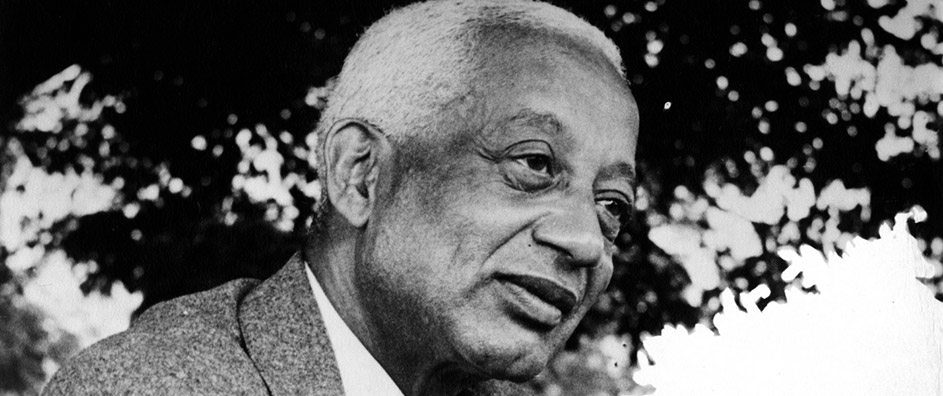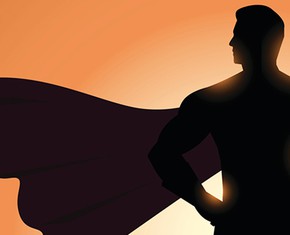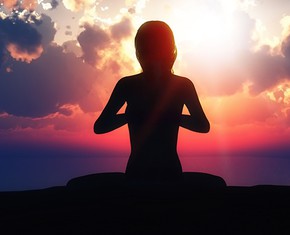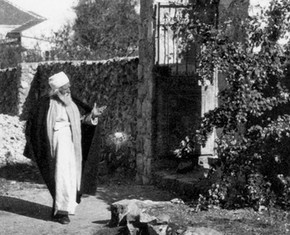The views expressed in our content reflect individual perspectives and do not represent the authoritative views of the Baha'i Faith.
Most older Americans, and lots of Europeans and Africans, know the names Booker T. Washington and W.E.B. DuBois, the leading African-American historical figures of the early 20th Century.
We learned about them in school, or read about them in newspapers or magazines. But another gentleman lived alongside Washington and DuBois whose name should, in my opinion, be equal, if not more prominent. That individual—scholar, philosopher, educator, journalist, author, poet, and accomplished musician, Dr. Alain Leroy Locke—has been called the “Dean of the Harlem Renaissance,” and its chief intellectual architect. Yet until I saw his name amongst a list of Baha’is of note (the list includes, among many others, jazz trumpeter Dizzy Gillespie, actress Carole Lombard, musical duo Seals and Crofts, and the late royals Queen Marie of Romania and Malietoa Tanumafili, II, King of Samoa), I had never heard of him.
Even after becoming familiar with his name, I still knew nothing more about him, other than his various honorary titles: the Dean, Father, or Herald of the Harlem Renaissance. Then I had the privilege of attending a seminar presented by Dr. Christopher Buck at the Desert Rose Baha’i Institute. Now I want to tell the world about Alain Locke and the lasting impact he had on American and global society.
Born September 13, 1885 in Philadelphia, PA, to a family of educators, he excelled as a student and went on to also attend university—a rare achievement for an African-American man at the turn of the century:
From 1902 to 1904, Locke attended the Philadelphia School of Pedagogy. Locke graduated second in his class in 1904. That year, Locke entered Harvard as an honor student. He was one of only a few African American undergraduates. – Christopher Buck, Alain Locke: Faith and Philosophy, p. 14
While at Harvard, Locke was elected to Phi Beta Kappa; he graduated with a degree in philosophy after only three years. In May 1907, Locke became the first African American Rhodes Scholar. He explained his interest in seeking this opportunity:
Besides the further education, I want to see the race problem from the outside. I don’t want to run away from it, but I do want to see it in perspective. – Green, “Cosmopolitan Unity Amidst Valued Diversity,” p. 132, quoted in Christopher Buck, Alain Locke: Faith and Philosophy, p. 15.
An important, life-long friendship began with Horace Kallen, a teaching assistant in one of his classes. Together they started a new movement. Kallen coined it “cultural pluralism,” but today we call it multiculturalism. According to Buck:
…it was really Locke who developed the concept into a full-blown philosophical framework for the melioration of African Americans. – Ibid., p. 15
Locke has recently been acknowledged as ‘the father of multiculturalism.’ – Ibid., p. 25
Locke continued studying, and earned his Ph.D. in Philosophy from Harvard in 1918.
Locke enjoyed a wealth of experiences: traveling through the Deep South with Booker T. Washington, being impressed by the First Universal Races Congress held in London in 1911, joining the faculty at Howard University in 1912 and becoming a member of the Baha’i Faith in 1918. He then worked diligently for the Baha’i-sponsored series of Race Amity Conferences, always seeking to help advance the arts of African Americans, thereby building their esteem amongst themselves and in society as a whole. This philosophy and its attendant efforts grew into the New Negro Movement which came to be known as the Harlem Renaissance. Locke said the movement:
…deliberately aims at capitalizing race consciousness for group inspiration and cultural development. But it has no political or separatist motives, and is, in this one respect, different from the nationalisms of other suppressed minorities. – “[Through Mrs. Ruth Cranston] Report on The Race Problem in the American Area.” Alain Locke Papers, MSRC. Box 164-43, Folder 3 (Writings by Locke—Notes[:] Christianity, spirituality, religion.) p. 3.
Locke approved of the efforts of W.E.B. DuBois, but not with DuBois’ idea of using art as propaganda. He wanted to develop racial pride, but in a way that would foster understanding and break down barriers between the races. In many ways, Locke’s philosophy of race mirrored those of his adopted Faith:
My hope is that through the zeal and ardour of the pure of heart, the darkness of hatred and difference will be entirely abolished, and the light of love and unity shall shine; this world shall become a new world; things material shall become the mirror of the divine; human hearts shall meet and embrace each other; the whole world become as a man’s native country and the different races be counted as one race.
Then disputes and differences will vanish, and the Divine Beloved be revealed on this earth. – Abdu’l-Baha in London, p. 38
















Comments
Sign in or create an account
Continue with Googleor